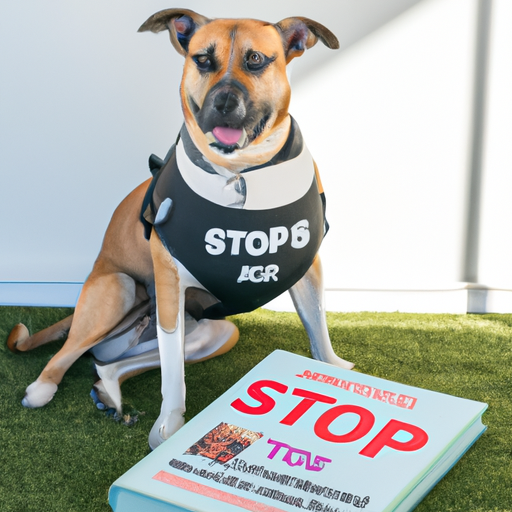Understanding Canine Aggression
Firstly, it’s important to understand what canine aggression is. Aggression in dogs is a complex issue and it can stem from a variety of sources. Aggression can manifest itself in several ways:
- Growling
- Snapping
- Biting
- Baring teeth
These behaviors can be triggered by numerous factors, including fear, territoriality, or a feeling of being threatened. In order to effectively address aggression in your dog, you need to identify the root cause.
Identifying the Causes of Aggression
Identifying the causes of aggressive behavior can be a daunting task, but it’s a crucial step in improving your dog’s behavior. Below are some common causes of aggression in dogs:
- Fear or Anxiety
- Possessiveness
- Illness or Pain
- Lack of Socialization
- Frustration
Addressing Aggression through Training
Training is a key component in managing your dog’s aggressive behavior. Be sure to employ positive reinforcement methods, as negative or punitive measures can exacerbate the problem. Here are some strategies you might find beneficial:
- Socialization Training: Expose your dog to different environments, animals, and people to help him learn appropriate behaviors.
- Obedience Training: Teaching your dog basic commands can help you control his behavior.
- Desensitization: Gradually expose your dog to the triggers of his aggression in a controlled environment to help him become less reactive.
Seeking Professional Help
If your dog’s aggression continues despite your best efforts, it might be time to seek professional help. A professional dog trainer or a veterinary behaviorist can provide more targeted strategies for managing your dog’s aggression. They can work with you to develop a tailored training plan and can also provide guidance on medication if necessary.
Preventing Aggression
Prevention is always better than cure. Here are some tips to prevent aggression in dogs:
- Regular exercise and mental stimulation
- Early socialization
- Regular veterinary check-ups
- Consistent, positive training methods
| Prevention Method | Explanation |
|---|---|
| Regular Exercise | Exercise helps burn off excess energy that could lead to aggression. |
| Early Socialization | This helps your dog learn how to behave around other animals and people. |
| Regular Vet Check-ups | Regular vet visits can help identify any health issues that may lead to aggression. |
| Consistent Training | Consistency in training helps your dog understand what is expected of him. |
FAQ
Q: Can aggression in dogs be cured?
A: While some dogs may never be completely free of aggressive behavior, with consistent training and management, most dogs can learn to control their aggression.
Q: Is aggression more common in certain breeds?
A: While some breeds have a reputation for being more aggressive, any dog, regardless of breed, can exhibit aggressive behavior.
Q: Can medication help with my dog’s aggression?
A: In some cases, medication can help manage aggression in dogs. However, it should be used as part of a comprehensive treatment plan and not as a standalone solution.
Q: My dog is only aggressive towards other dogs. What can I do?
A: This could be due to a lack of socialization. Gradually exposing your dog to other dogs in a controlled environment can help. If the problem persists, consider seeking professional help.
Remember, understanding and addressing your dog’s aggression is not a quick process. It requires patience, dedication, and compassion. With consistent efforts and the right approach, you can help your dog become a better, and safer, member of your family.



